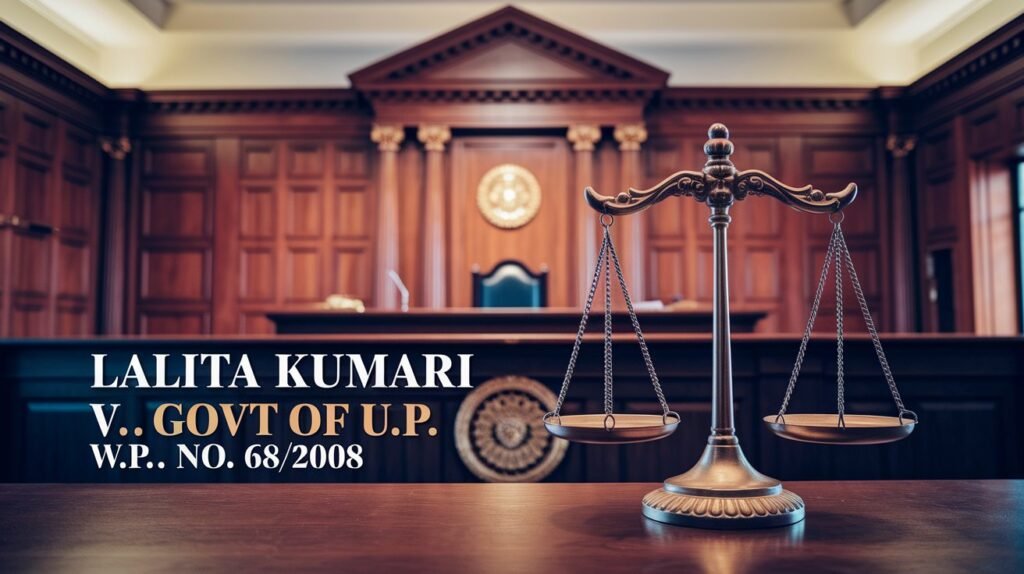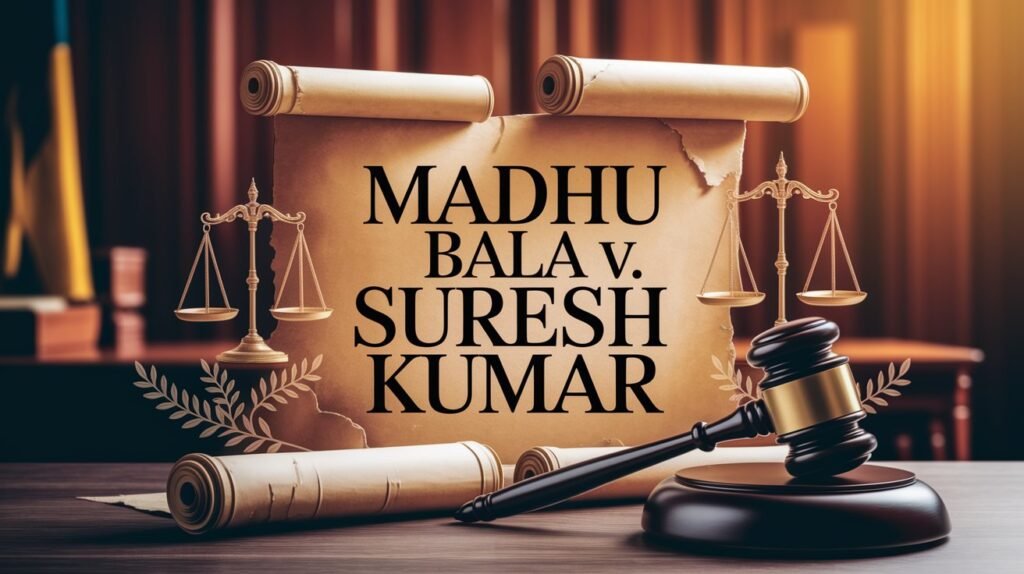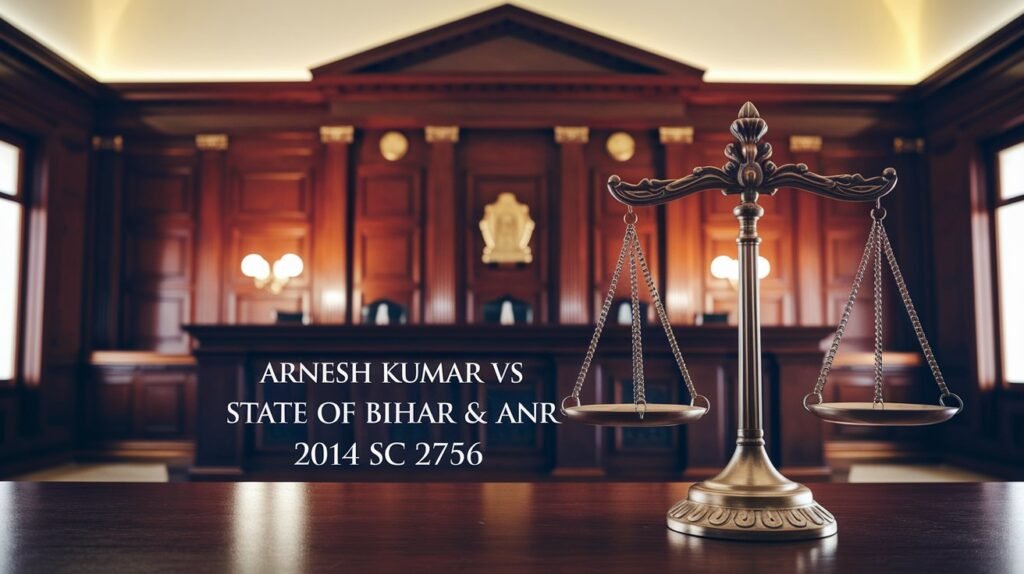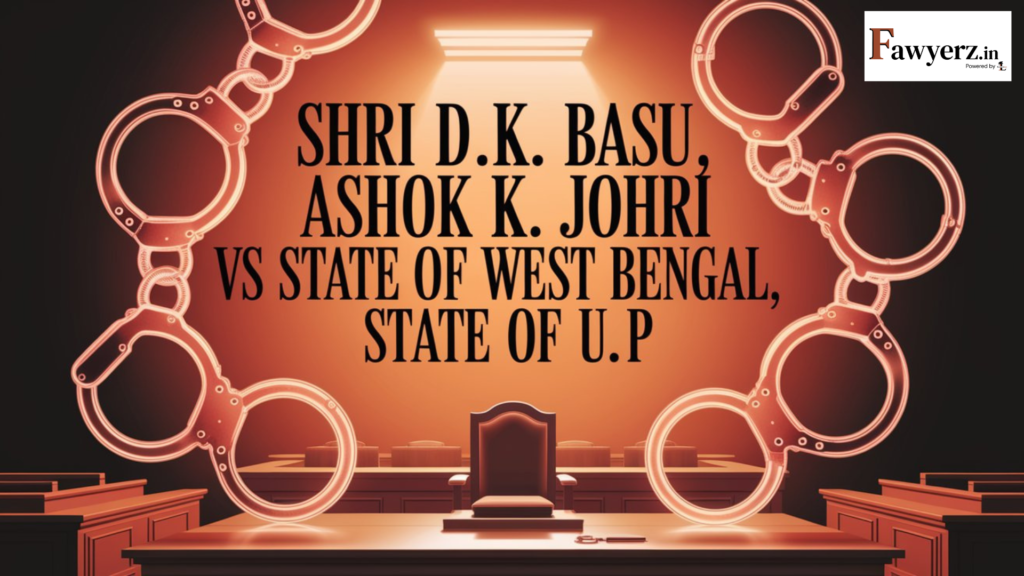Union of India v. T. Nathamuni 2020 (Case Summary)
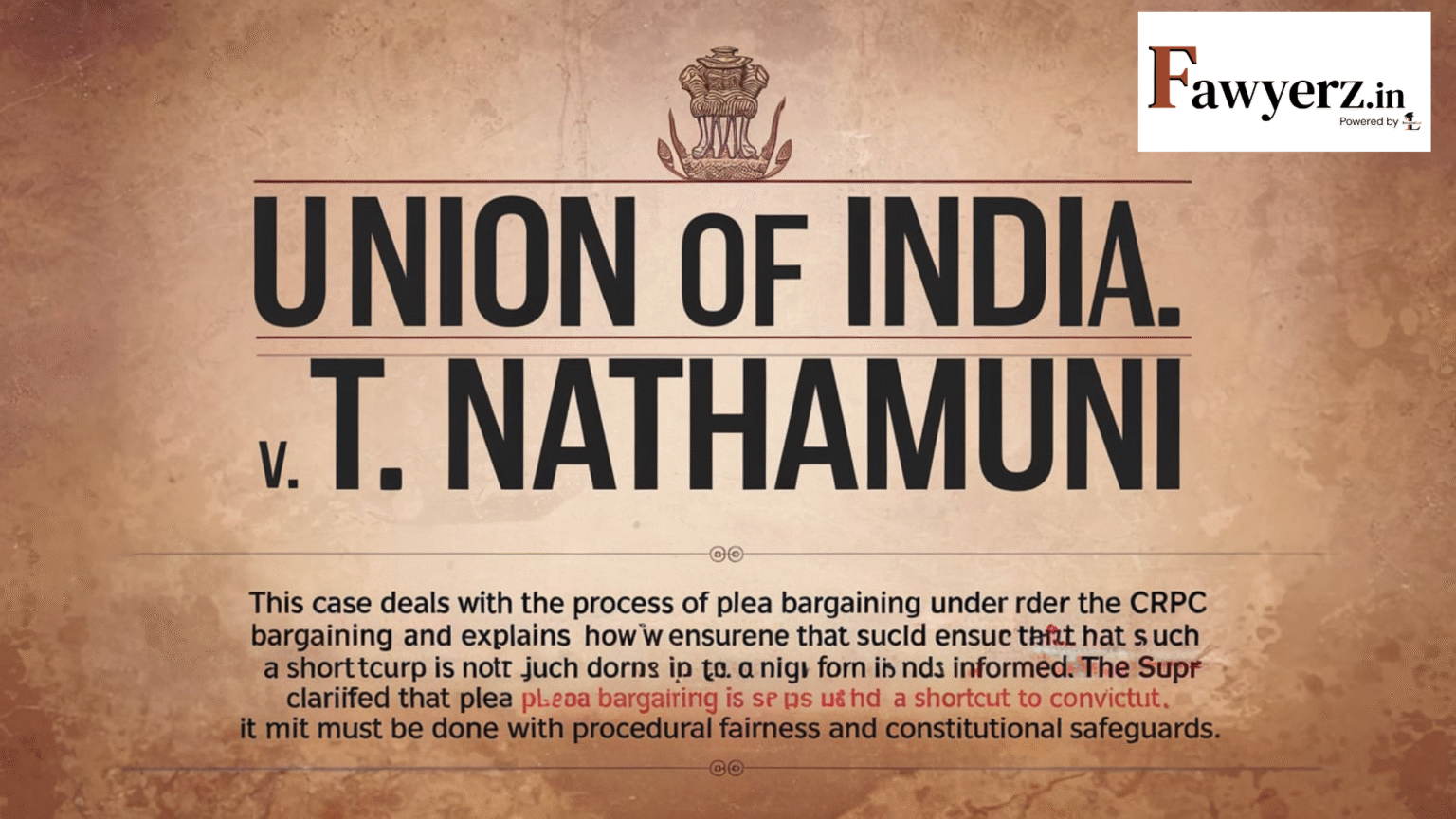
This case deals with the process of plea bargaining under the CrPC and explains how courts should ensure that such a plea is voluntary and informed. The Supreme Court clarified that plea bargaining is not just a shortcut to conviction it must be done with procedural fairness and constitutional safeguards.
Table of Contents
ToggleFacts of Union of India v. T. Nathamuni
- T. Nathamuni was facing trial for charges related to corruption and criminal misconduct.
- During the trial, he submitted an application for plea bargaining under Chapter XXIA of the CrPC.
- The Magistrate accepted his application, recorded his statement, and convicted him based on the plea.
- After conviction, Nathamuni challenged the order, claiming that his plea was not voluntary and that he did not understand the legal consequences.
- The matter was taken up before the Supreme Court to examine whether the plea bargaining had been conducted properly and lawfully
Issues framed
- Whether the procedure under Chapter XXIA of CrPC was correctly followed before accepting the plea bargain?
- Whether the court has a duty to ensure that plea bargaining is voluntary, informed, and not obtained under pressure or misunderstanding?
- Whether a conviction based on an invalid plea bargain can be set aside?
Subordinate Court Judgment
The trial court accepted the plea and convicted the accused. The High Court upheld the conviction. Nathamuni then approached the Supreme Court claiming violation of his rights under the plea bargaining process.
Judgment of Union of India v. T. Nathamuni
The Supreme Court closely examined Sections 265A to 265L of the CrPC (now mirrored in Sections 289 to 303 BNSS), which govern plea bargaining. The Court emphasized that the trial judge must not act mechanically. It is essential for the court to confirm that the accused is pleading guilty voluntarily, understands the nature of the allegations, and is fully aware of the consequences.
The Court held that plea bargaining cannot be reduced to a mere formality. If the record shows that the accused was not properly advised or was under pressure, then the plea is vitiated. The judge has to ask specific questions, create a clear record, and ensure that legal counsel has been offered. Failure to follow this process goes against the spirit of fair trial under Article 21 of the Constitution.
In the final judgment, the Court set aside the conviction and ordered a fresh trial. It held that while plea bargaining is encouraged to reduce pendency, it cannot be allowed at the cost of due process and informed consent. This decision reinforced the importance of judicial oversight in ensuring justice even during negotiated settlements in criminal law.


